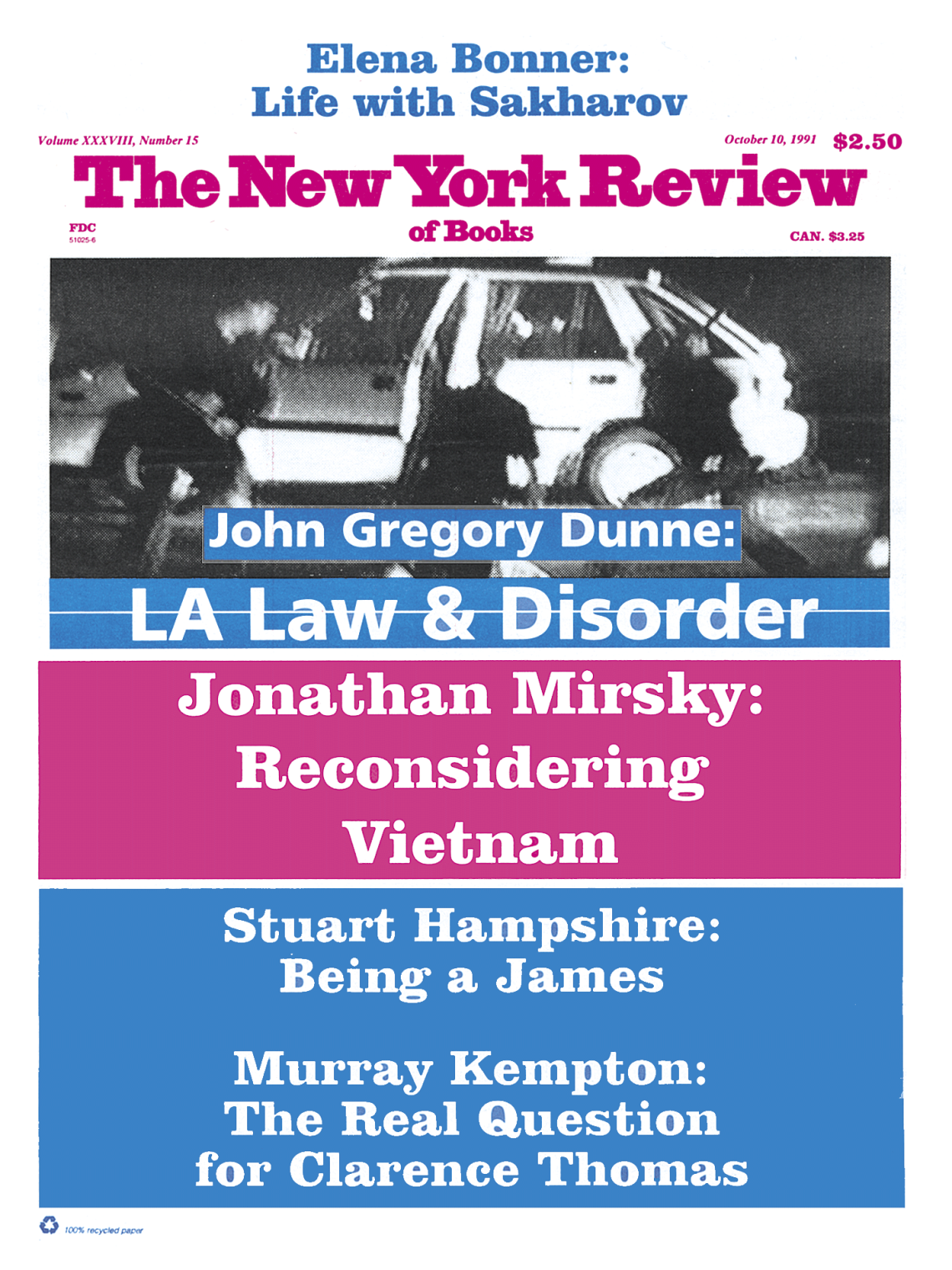In response to:
Is Japan the Enemy? from the May 30, 1991 issue
To the Editors:
James Fallows’ review article “Is Japan the Enemy?” [NYR, May 30] partially cites half the argument of my book Japan Versus the West and then faults its simplistic approach. Had he had the space for the second half, which analyzes the long-term frictions caused by increased competition from Japan and the real conflicts of interest which have arisen, your readers would know that I do not argue that an improvement of Western knowledge of Japan or Japanese efforts to communicate better are alone going to reduce tensions. The book also proposes various government policies and business strategies to reduce economic frictions. To attempt to improve communications without reducing frictions would not get us very far.
Endymion Wilkinson
Southeast Asia Unit
Commission of the European Communities
Brussels, Belgium
James Fallows replies:
Because I was writing about so many books, I gave Mr. Wilkinson’s Japan Versus the West more cursory treatment than I might ideally have done. It is a valuable book, and its second half does indeed contain a number of suggestions for political and economic reforms. Nonetheless, on rereading it (in response to his note) I still think it fair to say that it relies heavily on “mutual understanding” as a solution to Japanese–Western problems. The final chapter is called “Better Communications,” and the book’s final words are these:
Nothing can be achieved until the Japanese define more clearly the role they wish to play on the world stage and, having decided it, make massive efforts to be better understood. Nothing can be achieved unless Americans and Europeans, in reacting to external pressures, respond positively with a newly awakened desire to learn the sources of both their own strengths sources of both their own strengths and weaknesses, as well as those of their competitors, principally Japan.
This Issue
October 10, 1991


